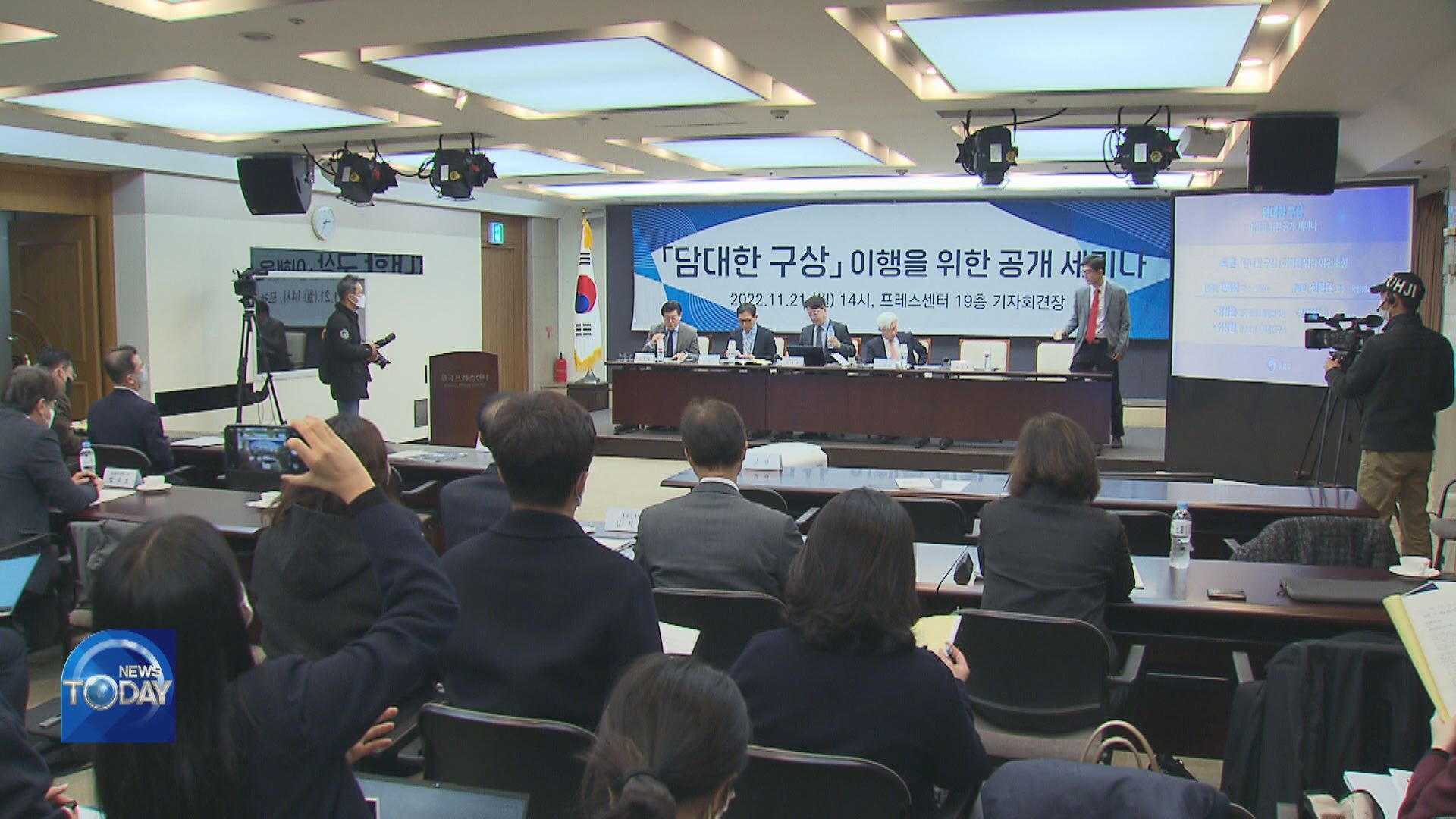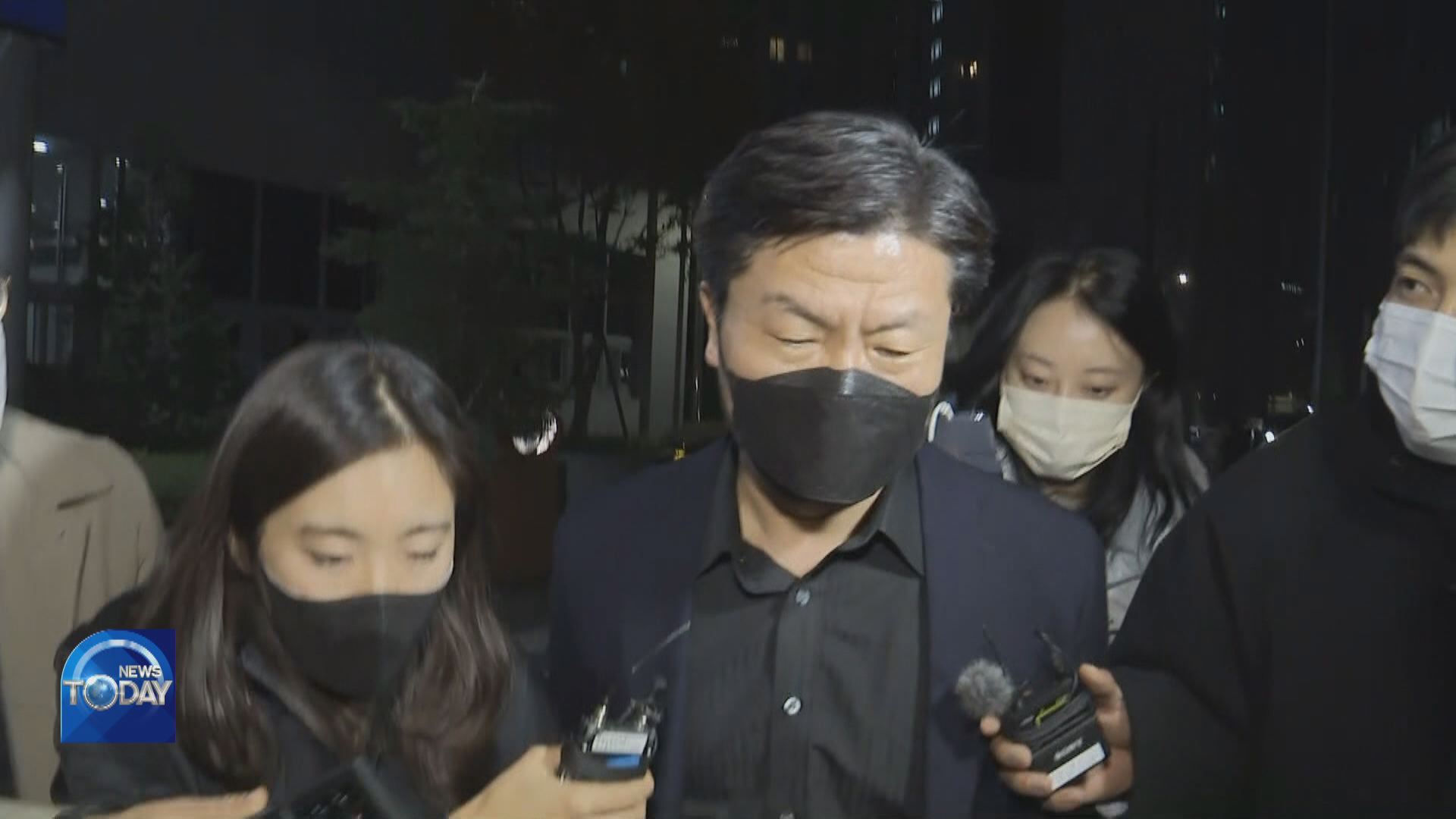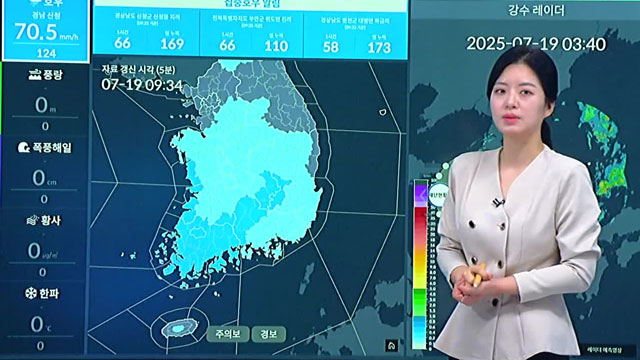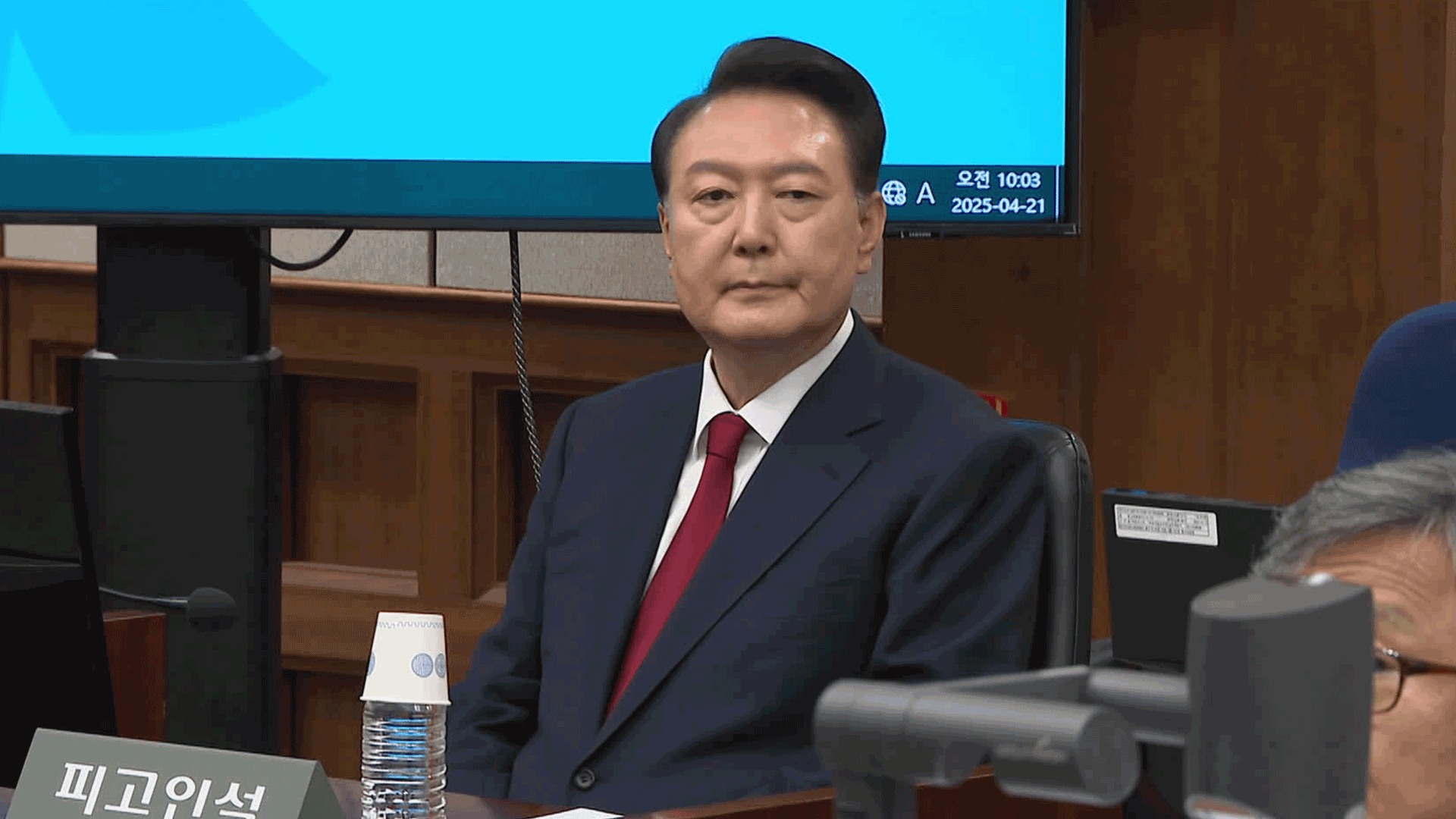GOVT’S BLUEPRINT IN DENUCLEARIZING N. KOREA
입력 2022.11.22 (15:29)
수정 2022.11.22 (16:45)
읽어주기 기능은 크롬기반의
브라우저에서만 사용하실 수 있습니다.
[Anchor Lead]
The government has unveiled a three-stage blueprint on its so-called "bold" initiative to encourage North Korea to denuclearize in exchange for economic aid. It also promised the improvement of U.S.-North Korea relations and arms controls between the two Koreas. However, the regime recently reiterated its stance not to give up its nuclear program, so questions are being raised regarding the feasibility of Seoul's plan.
[Pkg]
The unification ministry divided the bold initiative into three stages: initial measures; actual denuclearization and complete denuclearization. The first stage will go into operation once North Korea returns to nuclear talks. The initial measures include an exchange of food with North Korea's natural resources and programs to improve the hygiene of drinking water, public health and quality of life in the North. Afterwards, a comprehensive agreement will be induced on the ultimate goal of denuclearization and phased measures. In the second stage, dubbed actual denuclearization, South Korea will help North Korea upgrade power generation and distribution infrastructure and modernize ports and airport as well as medical facilities. In the political and military sectors, Seoul will work to improve Pyongyang's relations with Washington while discussing the establishment of a peace system. In the third stage of complete denuclearization, the South will conduct full-scale economic cooperation across the border when the North keeps its promise to denuclearize completely. It will also work to normalize U.S.-North Korea ties and sign a peace treaty as well as pushing for a full arms control.
[Soundbite] Kwon Young-se(Unification minister) : "If N. Korea returns to denuclearization talks, we are willing to put its concerns on the negotiating table for reciprocal discussions."
However, North Korea recently reiterated its stance not to give up its nuclear ambition through a series of ballistic missile launches. In August, Kim Yo-jong, the North Korean leader's sister, rejected Seoul's bold initiative, signaling a bumpy road for Seoul's plan.
[Soundbite] Prof. Jun Bong-geun(Korea Nat'l Diplomatic Academy) : "There are concerns that chances of inter-Korean dialogue and U.S.-N. Korea talks may be seriously low in the future. We are bearing the burden of a 30-year failure in nuclear talks with N. Korea."
North Korea's foreign minister Choe Son-hui slammed UN chief António Guterres' denouncement of Friday's ICBM launch by the regime.
The government has unveiled a three-stage blueprint on its so-called "bold" initiative to encourage North Korea to denuclearize in exchange for economic aid. It also promised the improvement of U.S.-North Korea relations and arms controls between the two Koreas. However, the regime recently reiterated its stance not to give up its nuclear program, so questions are being raised regarding the feasibility of Seoul's plan.
[Pkg]
The unification ministry divided the bold initiative into three stages: initial measures; actual denuclearization and complete denuclearization. The first stage will go into operation once North Korea returns to nuclear talks. The initial measures include an exchange of food with North Korea's natural resources and programs to improve the hygiene of drinking water, public health and quality of life in the North. Afterwards, a comprehensive agreement will be induced on the ultimate goal of denuclearization and phased measures. In the second stage, dubbed actual denuclearization, South Korea will help North Korea upgrade power generation and distribution infrastructure and modernize ports and airport as well as medical facilities. In the political and military sectors, Seoul will work to improve Pyongyang's relations with Washington while discussing the establishment of a peace system. In the third stage of complete denuclearization, the South will conduct full-scale economic cooperation across the border when the North keeps its promise to denuclearize completely. It will also work to normalize U.S.-North Korea ties and sign a peace treaty as well as pushing for a full arms control.
[Soundbite] Kwon Young-se(Unification minister) : "If N. Korea returns to denuclearization talks, we are willing to put its concerns on the negotiating table for reciprocal discussions."
However, North Korea recently reiterated its stance not to give up its nuclear ambition through a series of ballistic missile launches. In August, Kim Yo-jong, the North Korean leader's sister, rejected Seoul's bold initiative, signaling a bumpy road for Seoul's plan.
[Soundbite] Prof. Jun Bong-geun(Korea Nat'l Diplomatic Academy) : "There are concerns that chances of inter-Korean dialogue and U.S.-N. Korea talks may be seriously low in the future. We are bearing the burden of a 30-year failure in nuclear talks with N. Korea."
North Korea's foreign minister Choe Son-hui slammed UN chief António Guterres' denouncement of Friday's ICBM launch by the regime.
■ 제보하기
▷ 카카오톡 : 'KBS제보' 검색, 채널 추가
▷ 전화 : 02-781-1234, 4444
▷ 이메일 : kbs1234@kbs.co.kr
▷ 유튜브, 네이버, 카카오에서도 KBS뉴스를 구독해주세요!
- GOVT’S BLUEPRINT IN DENUCLEARIZING N. KOREA
-
- 입력 2022-11-22 15:29:13
- 수정2022-11-22 16:45:06

[Anchor Lead]
The government has unveiled a three-stage blueprint on its so-called "bold" initiative to encourage North Korea to denuclearize in exchange for economic aid. It also promised the improvement of U.S.-North Korea relations and arms controls between the two Koreas. However, the regime recently reiterated its stance not to give up its nuclear program, so questions are being raised regarding the feasibility of Seoul's plan.
[Pkg]
The unification ministry divided the bold initiative into three stages: initial measures; actual denuclearization and complete denuclearization. The first stage will go into operation once North Korea returns to nuclear talks. The initial measures include an exchange of food with North Korea's natural resources and programs to improve the hygiene of drinking water, public health and quality of life in the North. Afterwards, a comprehensive agreement will be induced on the ultimate goal of denuclearization and phased measures. In the second stage, dubbed actual denuclearization, South Korea will help North Korea upgrade power generation and distribution infrastructure and modernize ports and airport as well as medical facilities. In the political and military sectors, Seoul will work to improve Pyongyang's relations with Washington while discussing the establishment of a peace system. In the third stage of complete denuclearization, the South will conduct full-scale economic cooperation across the border when the North keeps its promise to denuclearize completely. It will also work to normalize U.S.-North Korea ties and sign a peace treaty as well as pushing for a full arms control.
[Soundbite] Kwon Young-se(Unification minister) : "If N. Korea returns to denuclearization talks, we are willing to put its concerns on the negotiating table for reciprocal discussions."
However, North Korea recently reiterated its stance not to give up its nuclear ambition through a series of ballistic missile launches. In August, Kim Yo-jong, the North Korean leader's sister, rejected Seoul's bold initiative, signaling a bumpy road for Seoul's plan.
[Soundbite] Prof. Jun Bong-geun(Korea Nat'l Diplomatic Academy) : "There are concerns that chances of inter-Korean dialogue and U.S.-N. Korea talks may be seriously low in the future. We are bearing the burden of a 30-year failure in nuclear talks with N. Korea."
North Korea's foreign minister Choe Son-hui slammed UN chief António Guterres' denouncement of Friday's ICBM launch by the regime.
The government has unveiled a three-stage blueprint on its so-called "bold" initiative to encourage North Korea to denuclearize in exchange for economic aid. It also promised the improvement of U.S.-North Korea relations and arms controls between the two Koreas. However, the regime recently reiterated its stance not to give up its nuclear program, so questions are being raised regarding the feasibility of Seoul's plan.
[Pkg]
The unification ministry divided the bold initiative into three stages: initial measures; actual denuclearization and complete denuclearization. The first stage will go into operation once North Korea returns to nuclear talks. The initial measures include an exchange of food with North Korea's natural resources and programs to improve the hygiene of drinking water, public health and quality of life in the North. Afterwards, a comprehensive agreement will be induced on the ultimate goal of denuclearization and phased measures. In the second stage, dubbed actual denuclearization, South Korea will help North Korea upgrade power generation and distribution infrastructure and modernize ports and airport as well as medical facilities. In the political and military sectors, Seoul will work to improve Pyongyang's relations with Washington while discussing the establishment of a peace system. In the third stage of complete denuclearization, the South will conduct full-scale economic cooperation across the border when the North keeps its promise to denuclearize completely. It will also work to normalize U.S.-North Korea ties and sign a peace treaty as well as pushing for a full arms control.
[Soundbite] Kwon Young-se(Unification minister) : "If N. Korea returns to denuclearization talks, we are willing to put its concerns on the negotiating table for reciprocal discussions."
However, North Korea recently reiterated its stance not to give up its nuclear ambition through a series of ballistic missile launches. In August, Kim Yo-jong, the North Korean leader's sister, rejected Seoul's bold initiative, signaling a bumpy road for Seoul's plan.
[Soundbite] Prof. Jun Bong-geun(Korea Nat'l Diplomatic Academy) : "There are concerns that chances of inter-Korean dialogue and U.S.-N. Korea talks may be seriously low in the future. We are bearing the burden of a 30-year failure in nuclear talks with N. Korea."
North Korea's foreign minister Choe Son-hui slammed UN chief António Guterres' denouncement of Friday's ICBM launch by the regime.
이 기사가 좋으셨다면
-
좋아요
0
-
응원해요
0
-
후속 원해요
0

















이 기사에 대한 의견을 남겨주세요.